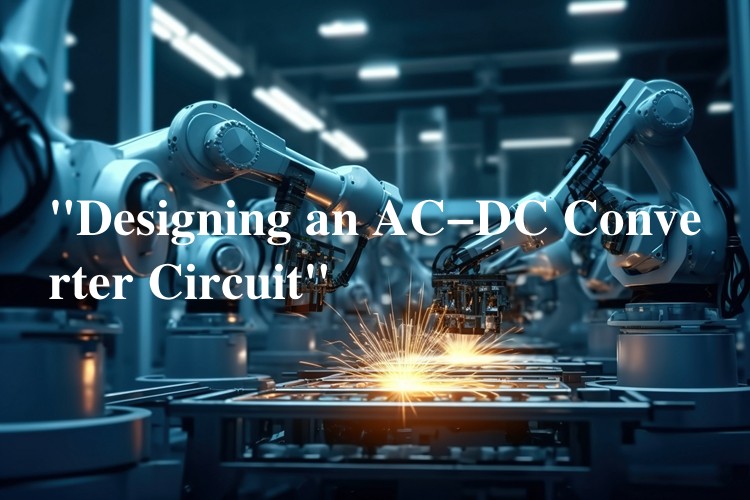소식
What factors affect the power generation efficiency of photovoltaic power sources?
저자: ZYG 전원 모듈 Time: 2024-10-15
Photovoltaic power sources, as a technology that converts solar energy into electrical energy, have a power generation efficiency that is an important indicator of their performance. However, in actual applications, the power generation efficiency of PV power sources is affected by many factors. The following is a detailed analysis of these influencing factors:
1. Light Intensity
Light intensity is the primary factor that affects the power generation efficiency of photovoltaic power sources. The intensity of sunlight directly determines how much energy photovoltaic cells can absorb and convert into electrical energy. In areas with high light intensity, the power generation efficiency of photovoltaic power source is usually higher. On the contrary, when the light intensity is low or blocked, the power generation efficiency will be significantly reduced.
2. Temperature
Temperature is also one of the key factors affecting the power generation efficiency of PV power source. As the temperature increases, the power generation efficiency of photovoltaic cells will gradually decrease. This is because high temperature causes the energy band structure of photovoltaic cells to change, making it more difficult for electron transitions to occur, thereby reducing the efficiency of converting light energy into electrical energy. Therefore, during the high temperature period in summer, the power generation efficiency of photovoltaic power sources may be affected to a certain extent.

3. Quality and Type of Photovoltaic Cells
The quality and type of photovoltaic cells are also important factors that affect power generation efficiency. High-quality photovoltaic cells usually have higher photoelectric conversion efficiency and longer service life. In addition, different types of photovoltaic cells (such as monocrystalline silicon, polycrystalline silicon, thin film cells, etc.) have differences in photoelectric conversion efficiency, cost, stability, and so on. Therefore, when choosing a photovoltaic power source, it is necessary to comprehensively consider the quality and type of photovoltaic cells based on actual needs and economy.
4. Design and Installation of Photovoltaic Power System
The design and installation quality of the photovoltaic power system will also affect the power generation efficiency. For example, whether the layout of the system is reasonable, whether the orientation and tilt angle of the solar panel are appropriate, and whether the selection and connection of the cable are standardized will affect the overall performance of the system. In addition, the maintenance and management of the PV power system is also an important link to ensure its long-term stable operation and efficient power generation.
5. Environmental factors
In addition to the above factors, environmental factors such as dust, rain, snow, haze, etc. will also affect the power generation efficiency of photovoltaic power sources. Dust and haze will block sunlight and reduce light intensity; rain and snow may cause ice or snow to form on the surface of the solar panel, affecting the absorption and conversion of light energy. Therefore, when designing and installing a photovoltaic power system, it is necessary to fully consider the local climatic conditions and environmental factors, and take appropriate protective measures.
In summary, the power generation efficiency of photovoltaic power is affected by many factors. In order to improve the power generation efficiency, it is necessary to comprehensively consider various aspects such as light intensity, temperature, quality and type of photovoltaic cells, system design and installation quality, and environmental factors. At the same time, strengthening the maintenance and management of the photovoltaic power system is also an important measure to ensure its efficient and stable operation.
관련 정보
-
2023-9-26
Top Recommendations for the Best Modular Power Supply for Your Gaming PC
Building a gaming PC requires careful consideration of various components, and one crucial element that often goes overlooked is the power supply unit (PSU). A reliable and efficient PSU is essential to ensure stable power delivery to your gaming rig, allowing it to perform at its best without any interruptions or damage. Among the different types of PSUs available, modular power supplies have gained popularity for their flexibility and cable management capabilities. In this article, we will explore some of the top recommendations for the best modular power supply for your gaming PC. 1. Corsair RM750x The Corsair RM750x is a top-tier modular power supply known for its exceptional performance and reliability. With a power output of 750 watts, it...
세부 정보보기 -
2023-6-16
AC DC Power Supply Module: A Comprehensive Guide
An AC DC power supply module is an electronic device that delivers a regulated DC voltage from an AC input voltage. This type of power supply is widely used in electronic equipment, ranging from small portable devices to large industrial machinery. In this article, we will discuss the workings of an AC DC power supply module, its applications, and the different types of power supply modules available in the market. Working of an AC DC Power Supply Module: An AC DC power supply module consists of three main components: the transformer, rectifier, and filter. The transformer is used to step down the AC input voltage to a lower voltage level. The rectifier converts the AC voltage into DC voltage, and...
세부 정보보기 -
2023-6-19
LED Power Supply: Converting 12V AC to DC for Optimal Performance
As the world becomes more reliant on technology, there is a growing demand for efficient and reliable power supplies. One option that has gained popularity in recent years is LED power supplies, which convert 12V AC to DC for optimal performance. In this article, we will explore the benefits of LED power supplies and how they work. LED power supplies are specifically designed to power LED lighting systems, which have become increasingly popular due to their energy efficiency and long lifespan. However, LED lights require a constant DC voltage to function properly, which is not provided by the standard AC power supply found in most homes and buildings. This is where LED power supplies come in. The main function of...
세부 정보보기 -
2023-6-20
Introducing the AES Series AC DC Converter
The AES Series AC DC Converter is a highly advanced and efficient power converter that is designed to convert alternating current (AC) to direct current (DC) with utmost accuracy and precision. This converter is a highly versatile device that can be used in a range of applications, such as telecommunications, industrial automation, medical equipment, and more. The AES Series AC DC Converter is a state-of-the-art device that is designed to meet the most demanding requirements of modern electronic devices. It features advanced technology that ensures high efficiency, low ripple, and high reliability. Some of the key features of this device include high efficiency, high power density, high reliability, and high power factor correction. One of the key advantages of the...
세부 정보보기 -
2023-4-27
Designing an AC-DC Converter Circuit
Designing an AC-DC Converter CircuitAn AC-DC converter circuit is a type of electronic circuit that converts alternating current (AC) to direct current (DC). This type of circuit is commonly used in power supplies for electronic devices and appliances. Designing an AC-DC converter circuit involves selecting the appropriate components and designing a circuit that can efficiently convert AC to DC.The first step in designing an AC-DC converter circuit is to determine the requirements for the circuit. This includes the input voltage, output voltage, output current, and efficiency. The input voltage is the AC voltage that will be supplied to the circuit. The output voltage is the DC voltage that the circuit will produce. The output current is the current that the...
세부 정보보기 -
2023-10-27
Versatile Adjustable Power Supply Module: The Ultimate Solution for Your Electrical Needs
Introduction: Having a reliable and versatile power supply is crucial for various applications. Whether you are an electronics hobbyist, a professional engineer, or a student working on projects, having a power supply that can cater to your specific electrical needs is essential. Thankfully, the Versatile Adjustable Power Supply Module is here to meet your demands and provide you with the ultimate solution. Key Features: 1. Adjustable Voltage and Current Output: One of the standout features of this power supply module is its ability to adjust both voltage and current output. With a voltage range of 0-30V and a current range of 0-10A, you can easily tailor the power supply to match the requirements of your specific electrical devices or circuits....
세부 정보보기


















